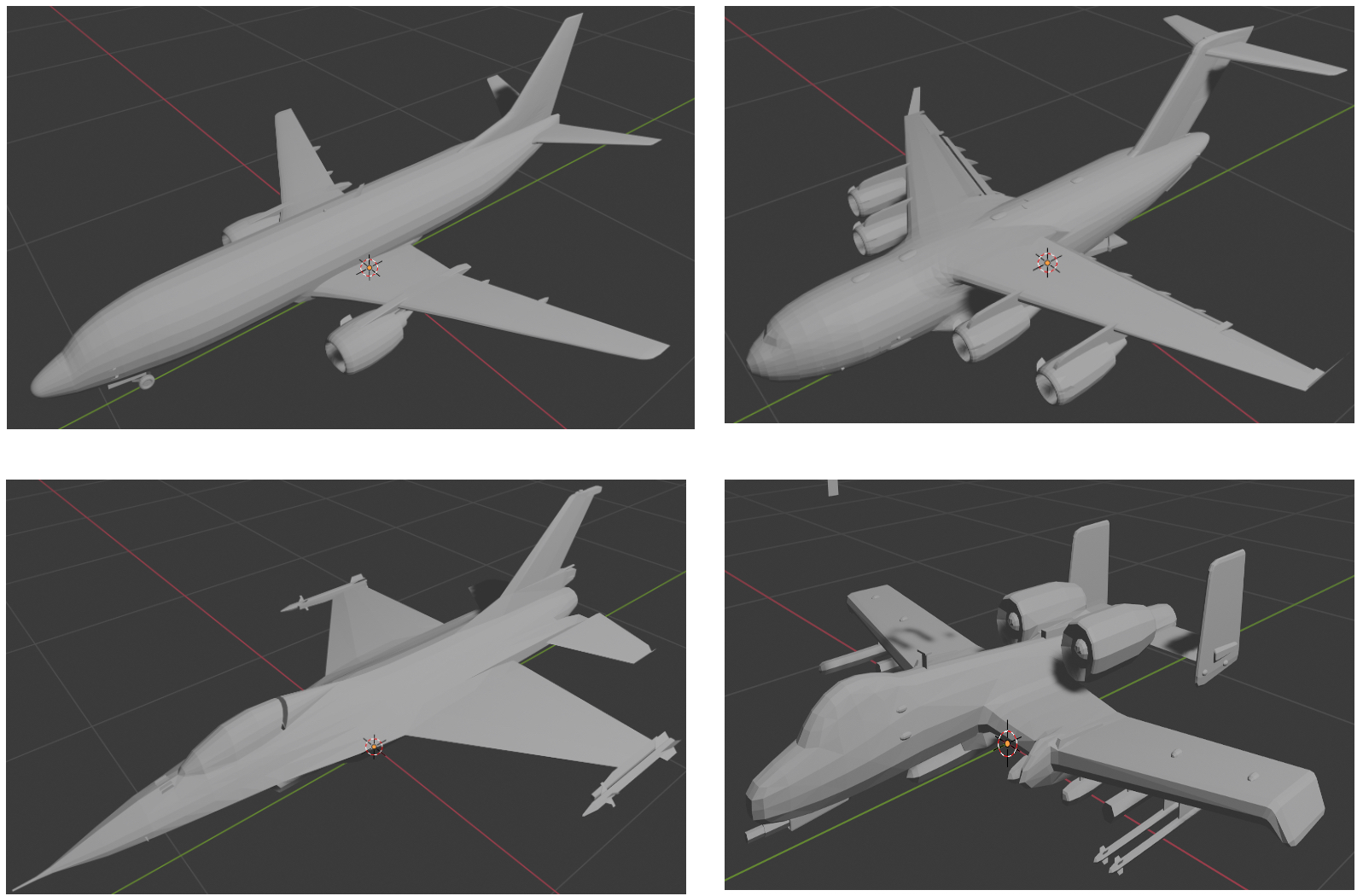Enabling Decision Advantage with AFIT’s Data Analytics Certificate Program
By Dr. Brent Langhals and Dr. Torrey Wagner
Posted Friday, February 07, 2025
AFIT’s Data Analytics Graduate Certificate program integrates Artificial Intelligence/Machine Learning (AI/ML) across its curriculum and offers participants an opportunity to enhance the capabilities of their unit, empowering data-driven decision making at every level.
This online, five-course program delivers DoD-focused AI/ML skills through a flexible distance-learning format, enabling CONUS and OCONUS students to succeed. With no prior coding experience required, students are introduced to Python programming and build expertise in data analytics techniques tailored to military and federal needs. Each course is designed to be completed over a 10-week period, with students typically enrolling in one course per quarter. A student cohort begins quarterly, and due to the program's popularity, there is currently a waitlist of 1-2 quarters.
The program’s overarching goal is to infuse data analytics expertise into a wide range of subject matter experts, supporting evidence-based decision making, operational efficiencies and battlespace awareness. To date, the program has graduated 269 students from all USAF major commands, many USSF Deltas, staff agencies and national laboratories, reflecting its broad impact across the DoD.

(Image licensed from Shutterstock.com)
CURRICULUM
AFIT’s Data Analytics Graduate Certificate program is structured to provide breadth and depth in AI/ML topics, balancing theory and practice. The five courses form a cohesive learning path:
• DASC 500 – Introduction to Data Analytics: Students begin their journey with a foundational understanding of data analytics, exploring key concepts such as the Cross-Industry Standard Process for Data Mining (CRISP-DM), data visualization, descriptive and predictive statistics.
• DASC 511 – Object-Oriented Programming with Python: Students learn Python programming, understanding the design solutions for complex data analytics challenges. This course starts with the basics of syntax, variables and functions, emphasizes understandable and reusable code, and equips students to understand the class structure of the python libraries used in the rest of the certificate: sqlite3, statsmodels, scikit-learn, matplotlib and keras.
• DASC 501 – Databases: This Python-based course focuses on database design principles, structured query language (SQL), and data integration techniques. Students learn to manipulate and query large datasets, in order to extract information for machine learning purposes.
• DASC 512 – Applied Statistics Using Python: This course enables students to build machine learning models that possess statistical confidence, which is essential to support important decisions. Students conduct hypothesis testing, build confidence intervals, and develop regression models, preparing them for predictive and diagnostic analytics tasks.
• DASC 522 – Machine Learning: The final course contains a comprehensive exploration of machine learning, including regression and classification approaches to supervised learning using statistical and neural network approaches. The course also covers aspects of natural language processing and unsupervised. Using Python, students tackle real-world data challenges and gain the skills to design, evaluate, and refine machine learning models.
CAPSTONE PROJECT
The capstone project is the culmination of the program, where each student applies their knowledge to a DoD-specific AI/ML task. Each participant selects a real-world problem within their organization and develops a tailored solution using the techniques learned throughout the program. This experience ensures graduates leave the program not only with theory but also with practical skills that directly enhance the capabilities of their units. The graphic below summarizes the types of machine learning problems students have solved – most students chose regression or classification approaches, but the capstone is structured to allow advanced students the chance to solve more complicated problems.

(U.S. Air Force graphic)
RESEARCH FOCUS
Data analytics faculty at AFIT have collaborated with students to expand 17 capstone projects into conference papers or journal articles, demonstrating the quality of the graduates and the program. A recent example of a capstone project extended into a journal article is titled “Aircraft Detection from Satellite Imagery Using Synthetic Data,” which investigates the innovative use of synthetic datasets to improve aircraft object detection models from satellite imagery.
This research addresses the challenges of traditional manual dataset annotation, such as errors, limited variability, and high resource demands. It may take 100+ hours to manually annotate a dataset, which is not required with a synthetic dataset. By generating a synthetic dataset of 5,000 images featuring over 27,000 aircraft, the study explores the application of 3D models overlaid onto satellite imagery. Using the YOLOv8x architecture, the project compares models trained on synthetic data against those trained on traditional manually annotated datasets, including HRPlanesv2, CORS-ADD, and MAR20. Four of the 31 models used in this work are shown below:

(U.S. Air Force graphic)
The findings reveal that models trained on synthetic data performed comparably to those trained on manually annotated datasets – performance metrics were within 2% of traditionally trained models. Additionally, the synthetic dataset demonstrated enhanced generalizability, showing the potential of synthetic data to complement or even replace traditional methods in scenarios where real-world data is limited or unavailable. The project demonstrates the impact of AFIT’s Data Analytics Graduate Certificate program, and how it can advance DoD capabilities through cutting-edge research. The article is published and available at https://doi.org/10.1177/15485129241309657.
APPLICATION INFORMATION
The tuition for AFIT’s Data Analytics Graduate Certificate program is waived for military and civilian USAF/USSF students, who can apply online at myvector.us.af.mil/myvector. Nominal tuition applies to sister services, other federal government agencies and federal contractors who can apply at https://www.afit.edu/admissions/afitapplicationprocess/.
MORE INFORMATION:
- Visit the Data Analytics Graduate Certificate web page: https://e.afit.edu/Dyvvyy9
- Email the program team at AFIT.EN.DataAnalytics@us.af.mil